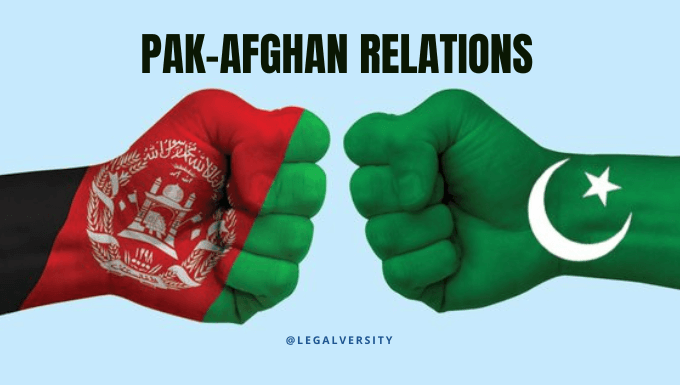Pakistan and Afghanistan are connected not only geographically but also in deep historical, religious, cultural, and cultural relations. In the last four decades when Afghanistan faced the destructive aggression of the two world powers, the Pakistani nation lost millions of people.
They opened not only the doors of their homes but also their hearts to the Afghan refugees. After the strong support of the Afghan people in the first offensive, Pakistan played a key role in paving the way for the negotiations between the Taliban leadership and the US government for the withdrawal of US forces from Afghanistan in recent years, which ultimately resulted in Doha peace.
A deal was reached, US forces left Afghanistan and the Taliban took over the country. After this development, it was expected that the Tehreek-e-Taliban Pakistan, which was involved in terrorist activities throughout the country during the American military killings and which did not hesitate to brutalize innocent children of the Army Public School Peshawar, there will also be a positive change in his behavior. But this hope has not materialized so far, the negotiation process has been inconclusive and the TTP has recently directed all its groups to resume terrorist operations across Pakistan since then.
There has been a significant acceleration. Along with this, in the last few days, the Afghan army opened fire twice in Pakistan’s territory at Chaman, as a result of which many Pakistani citizens were killed and injured. The forces on both sides kept vigil with heavy weapons on the borders on Friday too but no untoward incident took place.
In this context, Pakistan Foreign Minister Bilawal Bhutto Zardari while addressing the eighth anniversary of the attack on Army Public School Peshawar organized by the Pakistan Mission in the United Nations warned that Pakistan TTP or BLA Like other terrorist groups, will not tolerate cross-border terrorism.
On this occasion, he also clarified that there is concrete evidence of these groups receiving financial and technical support from rival countries, so we reserve the right to take direct action against them. Meanwhile, during a news briefing, the minister foreign minister was asked whether Pakistan could consider breaking ties with the current rulers of Afghanistan because they have openly allowed attacks on Pakistan.
May not wish to be, they are a reality and we share borders with them but the current strategy regarding relations with them may be reviewed’. However, in his address at the commemoration ceremony of APS, the foreign minister also said that Pakistan’s expectations from the Afghan Taliban government regarding stopping the cross-border attacks of TTP have not been fulfilled.
On this occasion, he also mentioned the dossier recently submitted to the Security Council containing evidence of Indian aid and assistance to terrorist organizations active in Pakistan. Undoubtedly, this situation should change positively soon because the continuation and increase of tension in Pak-Afghan relations are clearly against the interests of both countries and can become a means of achieving the goals of common enemies, so it is important that both sides understand each other. And by working with understanding, the issues should be corrected as soon as possible.
Relevant Article:
- The Future of Pak-Afghan Relations
- The “Deep State” and the Future of Pakistan
- How to Formulate the Foreign Policy of a State

